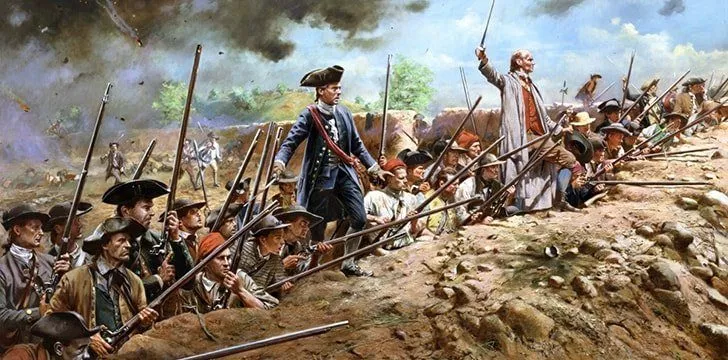15 Historic Facts About The Battle of Bunker Hill
The bloody battles were part of the process of establishing the United States as an independent nation.
American colonies faced obstacles from the British Empire which was much superior to them.
One of those obstacles led to the Battle of Bunker Hill, during which British troops and the colonial army fought in order to gain control of the peninsula in Charleston, Massachusetts.
In order to explain the events that led up to the battle and describe the battle itself, here are 15 detailed facts about the Battle of Bunker Hill.
The Battle took place at one of the nearby Hills of Boston on June 17, 1775.
When colonial forces besieged Boston, they received information about possible upcoming troops from the British side into the adjacent hill, called Bunker Hill.
The colonial army sent 1,500 men to fortify the area in order to deter the British threats.
A famous American Colonel, William Prescott commanded the Battle of Bunker Hill.
William Prescott supposedly said to his troops, “Do not fire until you see the whites of their eyes.”
He wanted his army to shoot the enemy from a close distance, so shots could become more lethal.
By using that strategy, Prescott also wanted to use a limited stock of ammunition more efficiently.
That strategy worked effectively until the colonial forces ran out of ammunition.
The battle demonstrated to the British how inexperienced militia could stand up against experienced troops regardless of expertise.

British claimed a victory, but with many costs. The casualties from the British side were significantly higher.
About 1,150 soldiers out of 2,400 British troops either got killed or wounded, while American colonial forces got away with 450 wounded and killed soldiers.
On top of that, the British army lost their valuable officers.
Although the colonial army could not control the area against the British forces, they could discourage the British from making further frontal attacks in the future.

No comments:
Post a Comment